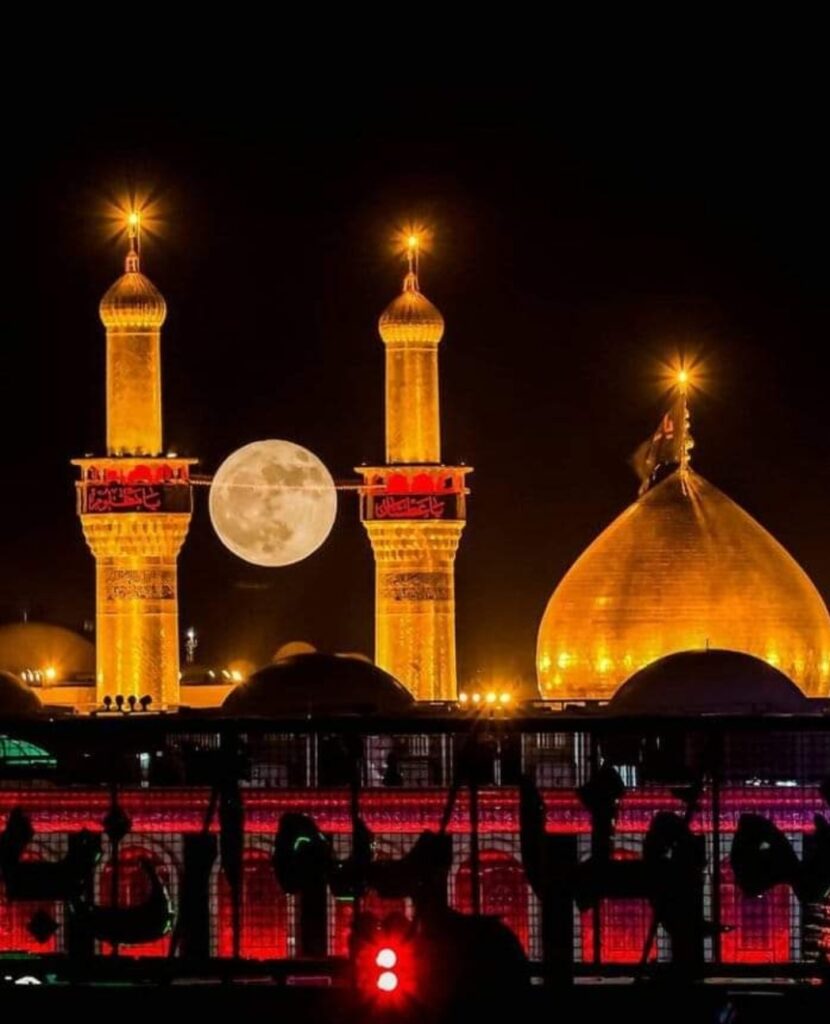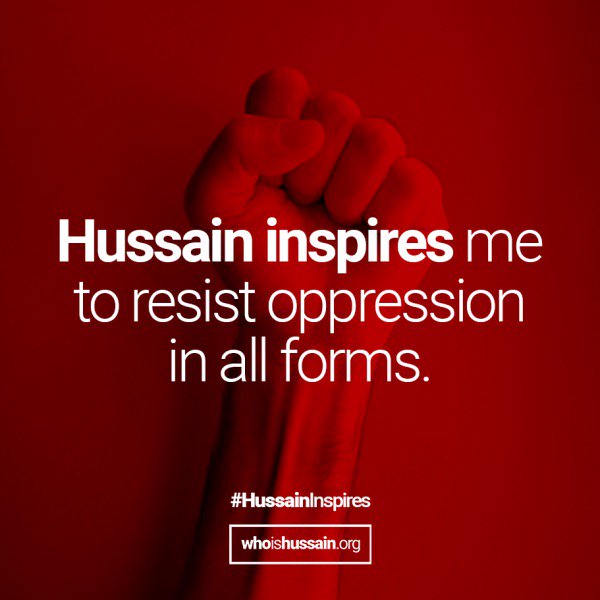
SAYINGS OF HAZRAT ALI A.S
Death is near and our mutual company is short. -Hazrat Ali (a.s)
Nobility is a matter of good intellect and good conduct, not of lineage and descent. -Hazrat Ali (a.s)
SECRETS Nobody can guard your secrets better than you, so do not blame anyone for revealing your secrets, for you could not hide them yourself. Your secret is your prisoner, which if let loose it will make you its prisoner.
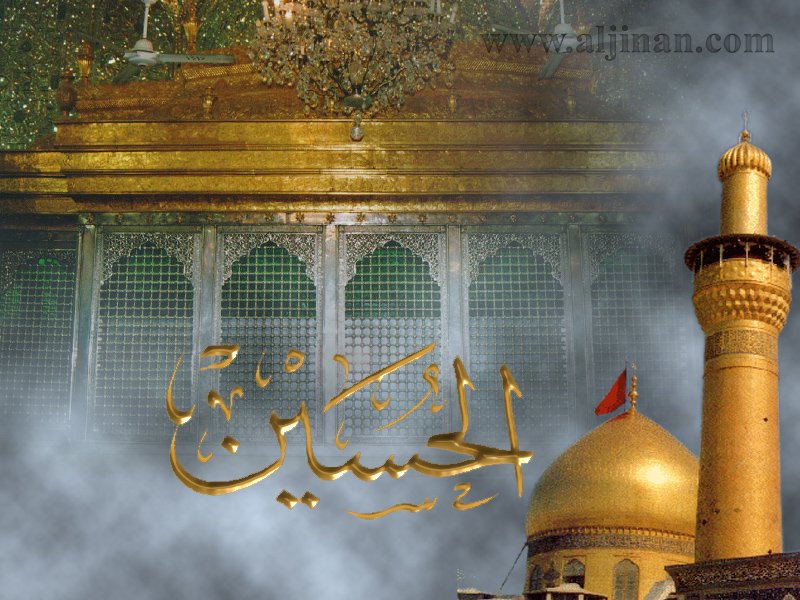
SALAM YA HUSSAIN A.S
Tasbih of Fatima Zehra (sa) :- Once the Prophet’s (saw) daughter Fatima Zehra (as) asked the prophet for a helper. The Prophet(saw) advised her to recite the Tasbih which is known as ‘Tasbih e Zehra’. This Tasbih is usually recited after each obligatory salat. However it also has great value for solving the problems of Rizq, Sustenance, Business, Job etc. Recite the tasbih with the niyat (intention) of seeking rizq (sustenance), before leaving the house ,before commencing business and before starting work at office.
34 times -Allah o Akbar, 33 times- Alhumdolillah & 33 times- Subhanallah
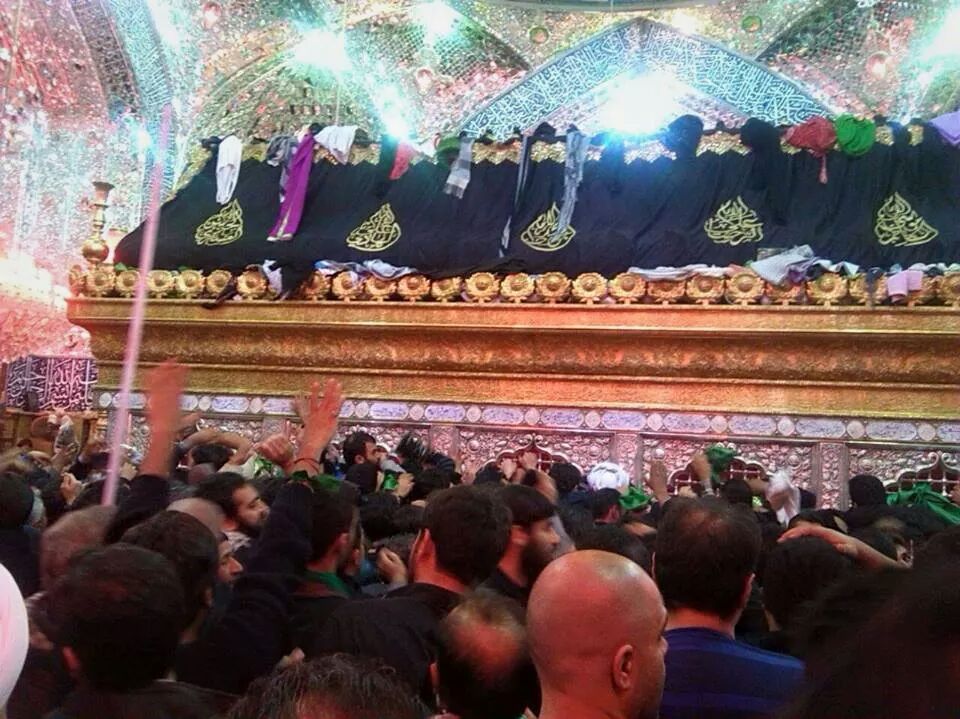

Shab e Juma and Friday Dua
Friday and Friday Nights Importance:The children of Hazrat Yaqoob ( a.s.) [Jacob] asked their father to request Allah to forgive them. Hazrat Yaqoob (a.s.) said; ” I will ask for you forgiveness from, my Lord” (Yusuf12, verse 98) .Interpreting this verse, Imam Sadiq (a.s.) has said: ” Hazrat Yaqoob (a.s.) delayed asking forgiveness until dawn of Friday night.”
There are two hours on Friday when Duas are answered: one is when Friday leader has completed the sermon and the worshippers are prepared for Friday prayer. The other is the last moments of Friday that is: “When half face of the sun is hidden.”
GHUSL :Holy Prophet said:”O Ali! People must bathe [at least] once every seven days, so do Ghusl (bathe) every Friday, even if you have to buy the water with [the money set aside for] your provision of that day and go without food, for there is no recommended act of worship greater than it.”[Reference: Bihar al-Anwar, vol. 81, p. 129, no. 18
SADAQA Imam Ja’far Sadiq (a.s.) said, “My father was having less money and had more expenses ,despite that he used to give Sadaqah every Friday. He used to say that the reward of Sadaqah on Friday is two-fold, for Friday is better than all other days.” According to Imam Jafar bin Muhammad As Sadiq alms and charity, given on Friday, collect and gather, in return, compensation, what is due multiplied by 1000 times. Give out in the name of Allah as soon as the night begins.
SALAWAAT The narrator asked Imam Ja’far Sadiq (a.s.), “Which is the best deed on Friday?” Imam (a.s.) replied, “Reciting Durood on Muhammad (s.a.w.s.) and his progeny a hundred times after Salaat-e-Asr on Friday. It is better to recite more than that.” (Sawabul A’amaal )
| O Allah, (please) bless Muhammad and the Household of Muhammad. | all¡humma ¥alli `al¡ mu¦ammadin wa ¡li mu¦ammadin | اللَّهُمَّ صَلِّ عَلَىٰ مُحَمَّدٍ وَآلِ مُحَمَّدٍ |
It is also advised us to recite the following salwaat as many times as possible during the night and also till the end of the Friday
| O Allah send blessings on Muhammad and on the children of Muhammad. Very soon, as early as possible, send them to us, a joy after sorrow. And destroy their enemies, From among the jinn and men, From the beginning to the end. | All¡humma ¥alli `al¡ mu¦ammadin wa ¡li mu¦ammadin
wa `ajjil farajahum wa ahlik `aduwwahum mina aljinni wal-insi mina al-awwal¢na wal-¡khir¢n |
اللّهُمَّ صَلِّ عَلى مُحَمَّدٍ وَآلِ مُحَمَّدٍ وَعَجِّلْ فَرَجَهُمْ وَاهْلِكْ عَدُوَّهُمْ مِنَ الجِنِّ وَالاِنْسِ مِنَ ألاَوَّلِينَ وَالآخِرِين |
NAMAZ TIMING FOR 28TH OF NOVEMBER 2018
- 28-11-2018
19 M.R.AWWAL 1440
WEDNESDAY - NAMAZ TIME
*FOR MUMBAI (IND)*
FAJR : 5:45am,
QAZA : 6:53am,
ZOHAR : 12:27pm,
QAZA : 6:00pm,
MAGRIB : 6:14pm - NAMAZ TIME
*FOR SURAT (IND)*
FAJR : 5:38am,
QAZA : 6:56am,
ZOHAR : 12:26pm,
QAZA : 5:55pm,
MAGRIB : 6:08pm - NAMAZ TIME
*FOR BHAVNAGAR (IND)*
FAJR : 5:41am,
QAZA : 7:01am,
ZOHAR : 12:30pm,
QAZA : 6:02pm,
MAGRIB : 6:09pm - NAMAZ TIME
*FOR AHEMDABAD (IND)*
FAJR : 5:42am,
QAZA : 7:02am,
ZOHAR : 12:29pm,
QAZA : 5:52pm,
MAGRIB : 6:06pm - NAMAZ TIME
*FOR DELHI (IND)*
*25th to 30th November 2018*
FAJR : 5:28am,
QAZA : 6:51am,
ZOHAR : 12:07pm,
QAZA : 5:24pm,
MAGRIB : 5:35pm - NAMAZ TIME
*FOR CHENNAI (IND)*
*25th to 30th November 2018*
FAJR : 5:03am,
ZOHAR : 11:56pm,
MAGRIB : 5:54pm - NAMAZ TIME
*FOR SRINAGAR (IND)*
*25th to 30th November 2018*
FAJR : 5:44am,
ZOHAR : 12:18pm,
MAGRIB : 5:34pm - NAMAZ TIME
*FOR BANGALORE (IND)*
*25th to 30th November 2018*
FAJR : 5:08am,
ZOHAR : 12:06pm,
MAGRIB : 5:59pm - NAMAZ TIME
*FOR HYDERABAD (IND)*
*25th to 30th November 2018*
FAJR : 5:22am,
ZOHAR : 12:13pm,
MAGRIB : 5:49pm
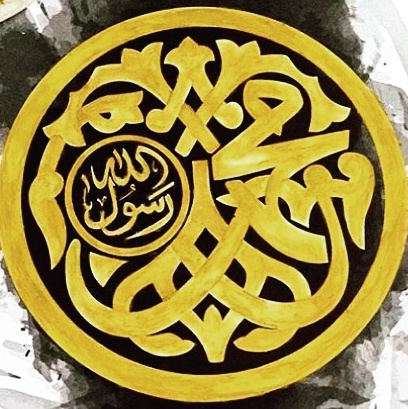
LABBAIK YA RASOOL ALLAH S.A.W.
LABBAIK YA RASOOL ALLAH S.A.W

LABBAIK YA HUSSAIN A.S
LABBAIK YA HUSSAIN A.S
MUHARRAM 1440 HIJRI
HUJJAT UL ISLAM MOLANA GHANZAFAR HUSSAIN RIZVI WILL ADRESS THE MAJLIS 1440 MUHARRAM AT 8:30 PM AT IMAM BARGA SUFI SHAH R.A MARKAZI AZAKHANA PIRMITHA JAMMU.
GHAM E HUSSAIN A.S
GHAM E HUSSAIN A.S
SAYING OF IMAM HUSSAIN A.S
Avoid oppressing the one who does not have any supporter against you, other than the Almighty God. (Bihar al- Anwar, Vol. 78, P. 118)
Eid
Imām Ja’far ibn Muhammad al-Sādiq (عليه السلام) ne farmaya: “Din me Sadqah dena Gunaho ko is tarah khatm kar deta hai jaise pani me namak khatm ho jata hai, Raat me diya gaya sadqa Allāh ke gusse to thanda kar deta hai .” [Reference: Sawaabul A’amaal , Page 189] (Salwat)
MUHARRAM 1440 HIJRI
MOLANA AZIZ UL HASSAN WILL ADDRESS THE MAJALIS DURING ASHURA 1440 HIJRI
RESENTMENT
Anjuman e Imamia Jammu today called an emergency meeting of its executive body to condemn the telephonic conversation of Saif Abbas representative of Sadiq Sherazi and also the principal madrasah Abu Talib Lucknow India.
During the meeting president Syed Amanat Ali Shah said it is a conspiracy to create a ridge between the Muslim Ummah and sponsored by US, Israel and other allies. He further added that we should be aware of these kind of sponsored so called aalims that are openly against the concept of Wilayat and we strongly condemn and appeal to muslim ummah that be united and fight against this kind of propaganda against wilayat and world leader Rehbar e Moazam.
While speaking on the occassion Prof. Shujat Khan said that these kind of acts and gatherings specifically organized on Ayamey Fatima in UK and these venom spitting Zakireens have been provided with all the logistic support like their Visas and other facilities by the MI6.
He further added that Islam never has its roots in UK and we will strongly condemn the Sadiq Sherazi group who is working shoulder to shoulder with anti Islamic forces and its our prime duty to unveil their criminal agendas of dividing the Shias and Sunnis.
ARABAIN 1439 HIJRI DATED 10 11 2017
Anjuman-e-Imamia Jammu
Head Office Karbala Complex Jammu.
Ref No.aij/110 Date:10 11 2017
Keeping the tradition alive a procession of Chehlum (40th Day) of Shodaye Karbala was taken out under the banner of Anjuman-e-Imamia Jammu in Jammu city. People from different faiths pay tribute to the martyrs of karbala. The procession started from Peer Mitha sofi Shah and passed through its traditional route lakhdata bazar, rajinder bazar, Ghaas Mandi Chowk, wazarat road and culminated at karbala complex. Thousands of mourners participated in the procession to pay rich tributes to the martyrs of karbala.
Maulana Syed Ali Badshah Naqvi Imam Jumma addresed the gathering of mourners before the procession was taken out. He passionately narrated the martyrdom of Imam Hussain (a.s) and his companions at karbala. The mourners paid homage to Imam Hussain (a.s) by taking out Alam and Tazia procession.
President Anjuman-e-Imamia Syed Aman Ali Shah said that it is because of the shahadat of Imam Hussain (a.s) and his 72 companions that Islam is alive. He sacrificed everything for the sake of Huimanity and Islam. He further added that after 1400 years people still observed Moharram with same passion.
The mourners were also expressing their solidarity with people of Bahrain, Yemen, Palestine and Nigeria .However, in various sermons the clerics said that Karbala teaches all the communities to come out of ignorance and fight against those who are killing and committing atrocities across the world.
To pay homage to martyrs of Karbala a Blood Donation Camp was also organized by Anjuman-e-Imamia in collaboration with Shaheed Mutahiri Library New Plot, Anjuman-e-Haidery New Plots, ALMSAJ. Donors from Jammu, Poonch, Gursai, Surankote, Mandi, Kashmir and especially students from Ladakh and Kargil student associations participated in good number.
While speaking to media Prof. Sujat Khan Secretary Anjuman-e-Imamia Jammu said that we are doing this noble cause of donating blood for the sake of humanity that we have learned from the battle of karbala.
Keeping the sense of communal harmony alive once again jammuites showed the example of brotherhood as people from different communities participated in the procession.
While presenting vote of thanks after culmination of the procession Prof. Sujat Khan Secretary Anjuman-e-Imamia Jammu said that we are thankful to the administration and all the departments for their unconditional support to make this event a success. He also thanks all the Anjumans like Anjumans of poonch , Kashmir, Anjuman-e-haidery new plot, Anjuman-e-hussaini bathindi, and All Ladakh Muslim Students Association jammu, volunteers of shaheed Mutahiri Library New Plots.
Prof. Sujat Khan
Secretary
Anjuman-e-Imamia,
Jammu
SADQA
*Din o Raat me Sadqa*
Imām Ja’far ibn Muhammad al-Sādiq (عليه السلام) ne farmaya: “Din me Sadqah dena Gunaho ko is tarah khatm kar deta hai jaise pani me namak khatm ho jata hai, Raat me diya gaya sadqa Allāh ke gusse to thanda kar deta hai .” [Reference: Sawaabul A’amaal , Page 189] (Salwat)
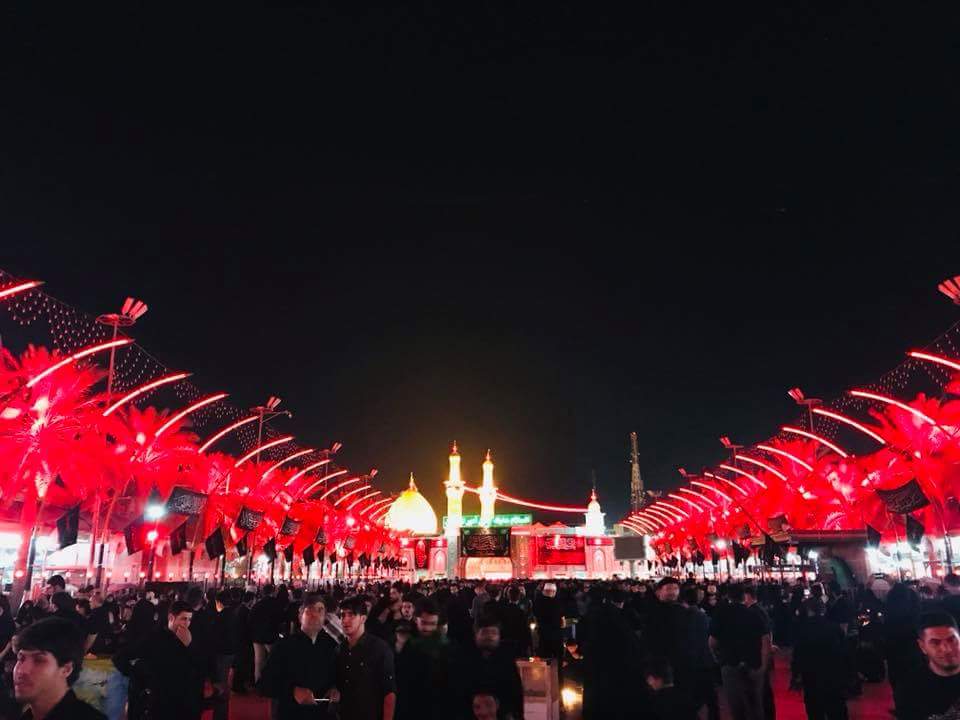
IMAM HUSSAIN A.S
English
THE FULL STORY OF HUSSAIN IBN ALI
No more than 50 years had passed since the death of Muhammad (the last Prophet of Islam) and the Muslim Empire was sliding into corruption under a tyrant from the Ummayad dynasty, Yazid.
Hussain ibn Ali, the grandson of Prophet Muhammad took a stand against Yazid’s illegitimate rule. Whilst Yazid was in equal parts feared and despised for his ruthlessness, Hussain was admired and respected by society at large. Mindful of this, Yazid decided that he would demand Hussain’s allegiance, hoping to gain some form of legitimacy for his inherited rule.
Hussain had a choice to make. To endorse Yazid would no doubt mean a handsome reward and a life of luxury. To refuse would invariably lead to his own demise. What should he do? What would you or I do? For Hussain the choice between the easy thing and the right thing was no choice at all.
Hussain refused.
He said: “I will never give Yazid my hand like a man who has been humiliated, nor will I flee like a slave… I have not risen to spread evil or to show off… I only desire to enjoin good values and prevent evil.”
His life now under threat, Hussain decided to move himself and his family to Mecca in the hope that Yazid’s agents would respect the holy city. As he waited, pondering his next move, messages of support began to arrive from across the empire. He left for Kufa, a city in Iraq, but en route, he was intercepted by a battalion of Yazid’s soldiers, who blocked Hussain and his supporters from going towards Kufa and instead forcibly diverted towards the desert town of Karbala.
Once they reached Karbala, forces surrounded their small band and blocked their access to the water supply. With both camps stationed at Karbala, a stalemate ensued. Hussain had made it clear that he could not, and would not, bow to Yazid. The opposing forces of 30,000 soldiers, which vastly outnumbered Hussain’s small band of seventy-two men and their families, were under strict orders not to let Hussain leave.
After a week, word reached Hussain that Yazid had sent orders that he was not to be allowed to leave Karbala until he had taken an oath of allegiance. The end was drawing close.
The final stand of Hussain ibn Ali.
That night Hussain assembled his group, stressing to them that it was his life that Yazid wanted and that they might be able to escape. Again, Hussain’s selflessness shone through. There he stood, amongst his family and companions, all having been deprived of water in the scorching desert for three days, pleading with them to leave him and save themselves!
After a few days of this stalemate, the government forces were commanded to attack and kill Hussain and his companions. Hussain’s men were vastly outnumbered. The hour for battle commenced, Hussain’s companions departed from their camp in small bands and one after the other – all fighting valiantly before being killed.
Throughout the day the forces of Yazid asked Hussain for his allegiance, yet Hussain resisted. Eventually Hussain was alone with no one left to support him. Fatigued, thirsty, and heavily wounded, Hussain fell to the ground as the women and children looked on.
He too was killed mercilessly, yet he died holding on firmly to his principles.

IMAM HUSSAIN A.S
1..Imam Hussain (a.s.) himself and his friends were martyred in the Ashoora’s tragic event, his family was taken prisoner, their properties were plundered and looted but the aim and objective of Hussain (R.A.) remained alive.
2..If Imam Husayn had aimed at acquiring a worldly empire, he would not have traveled the way he did (from Medina to Karbala). Husayn weltered in blood and dust for the sake of truth. Verily he, therefore, became the bed-rock (foundation) of the Muslim creed; la ilaha illa Allah (There is no god but Allah).
3..The most generous person is the one who offers help to those who do not expect him to help”
(Bihar al- Anwar, Vol. 78 , P. 121)
4..
“To me , death is nothing but happiness, and living under tyrants nothing but living in a hell”
(Tohaf-al- Uqoul , P. 245)
5..

ASHURA
Ashura is the story of Imam Hussain AS, who was martyred by the forces of Yazid on the plains of Karbala in what is modern-day Iraq. The word “Ashura” literally means “10th” since it falls on the 10th of Muharram in the Islamic calendar. The story of Imam Hussain AS is one of sacrifice, and inspiration, in order to defy tyranny and preserve the ethos and values of the Islamic faith from corruption. The hedonistic caliph Yazid, ruling from Damascus, sought to force Hussain AS to swear fealty to him, in order to gain legitimacy for his claim of spiritual and political authority.
Hussain AS was the grandson of the Prophet SAW, the son of the fourth caliph Ali ibn Talib SA. (The abbreviation AS stands for “alayhis salam” which is a customary honorific applied to the name of important figures in Islam. The acronym SAW is a similar acronym reserved for the Prophet Muhammad alone, which translates to “upon him be peace.”) Yazid knew that his rule depended on securing Hussain’s AS allegiance. Hussain AS did not seek political power for himself or to replace Yazid. Hussain AS only sought to assert his spiritual authority and guide muslims in the faith. But his spiritual authority was perceived as a political threat by Yazid, and his refusal to submit an act of defiance. The significance of Ashura to Shiite muslims is in mourning the martyrdom of Hussain AS, but also in inspiration for doing what is right for the greater good. Hussain’s AS sacrifice reminds us that we must not accomodate forces that seek to coopt religion for political gain, that we must not abandon our values and our beliefs.
Ashura is not a sectarian doctrine but a timeless message that resonates in every era. Muslims today (Shiite and non-Shiite alike) can draw inpsiration from Hussain AS in many ways, such as choosing to retain their so-called “muslim garb” (of Juan Williams’ consternation) despite the unwanted attention it may bring them. Likewise, in Yazid we can see the face of other tyrants and self-styled authorities, such as Anwar al Awlaki or Osama bin Laden, who invoke and corrupt religion to further their nakedly political ambitions.
But central to Ashura must be sorrow. There is a great tragedy in the martyrdom of a saint, and Hussain AS was a prince among saints. Shiite muslims mark the occassion of Ashura by reciting marathiya, rhythmic liturgies that recount the story of Karbala. We also symbolically express our grief with matam, a symbolic beating of our breast with our open palm. These rituals are performed in majlis, a gathering at mosques or other centers, on the days leading up to Ashura and on the day of Ashura itself. Thus, Shiite Muslims have observed and remembered the sacrifice of Hussain for centuries. In our sorrow is our responsibility to fulfill the uncompleted trust laid upon us by Imam Hussain AS.
Hussain AS lay against the tree, beaten and bloodied, pierced by arrows and swords. The wicked Shimr came to him and shoved him roughly to the ground. Shimr sat upon Hussain’s AS chest and tried to cut his neck with a blunted knife, but Hussain AS cried out, “Shimr, arise! Your knife will not cut here, for this is where the Prophet SAW kissed me often as a child.”
With sudden strength, Hussain AS threw Shimr off, and then performed one final sajda (prostration). In that last fleeting moment, before Shimr lowered his sword, Hussain AS prayed for Islam, for muslims and the world. YA HUSSAIN!
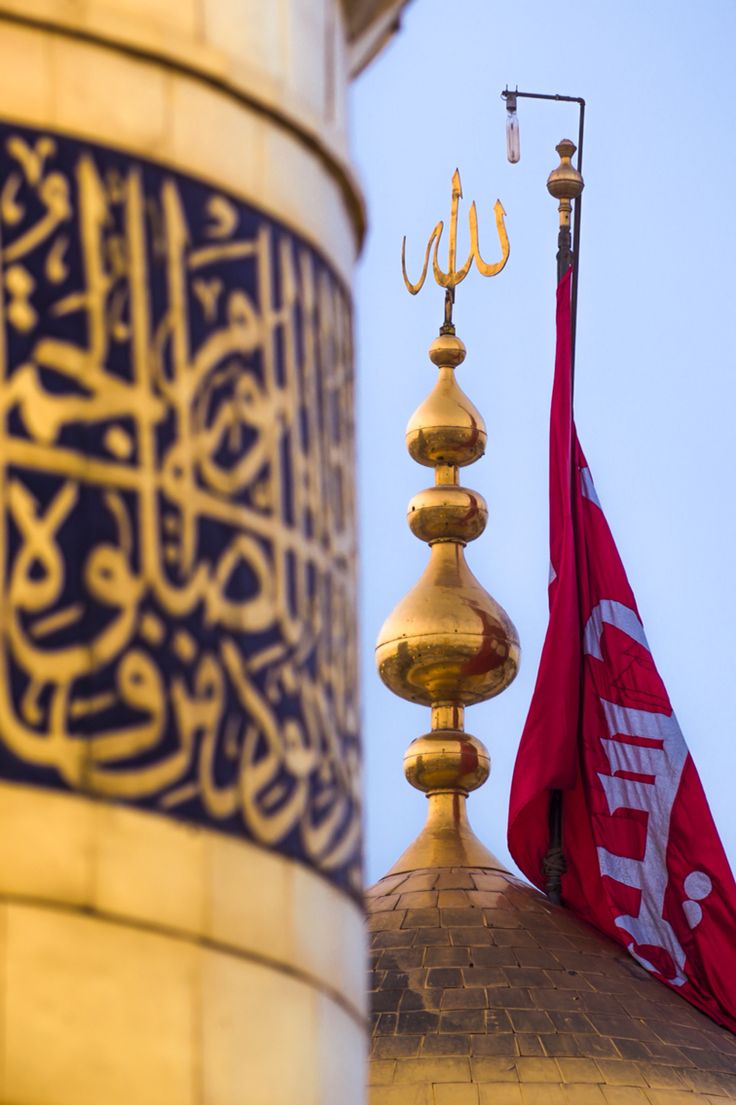
KARBALA
Note: When the word “Karbala” is used in the context of Muslim history or culture, it almost invariably refers to the events around the Battle of Karbala in which Hussein was slain, not the city that stands there today.
Karbala (Arabic: كربلاء; BGN: Al-Karbalā’; also spelled Karbala al-Muqaddasah) is a city in Iraq, located about 100 km (60 mi) southwest of Baghdad at 32.61°N, 44.08°E. In the time of Husayn ibn Alī’s life, the place was also known as al-Ghadiriyah, Naynawa, and Shathi’ul-Furaat. The estimated population in 2003 was 572,300 people. It is the capital of Karbala Governorate. Shi’a Muslims consider Karbala to be one of their holiest cities after Mecca, Medina, Jerusalem and Najaf. The city is best known as the location of the Battle of Karbala
Etymology
There are several theories as to the origin of the name Karbala. One traditional hypothesis is geographer Yaqut al-Hamawi’s belief that the name is an alternate Arabic feminine version of karbalah “soft earth”.[1]. Another theory is that the name came from the Aramaic root Karb or Qarb; meaning “Near”, and Alah; meaning God. Hence, the word ‘Karbala’ signifies ‘Near God’.[2]
According to Shī‘ah belief, the true meaning of the name Karbalā was narrated to Muhammad by the archangel Gabriel as being, “the land which will cause many agonies (karb) and afflictions (balā).”[3]
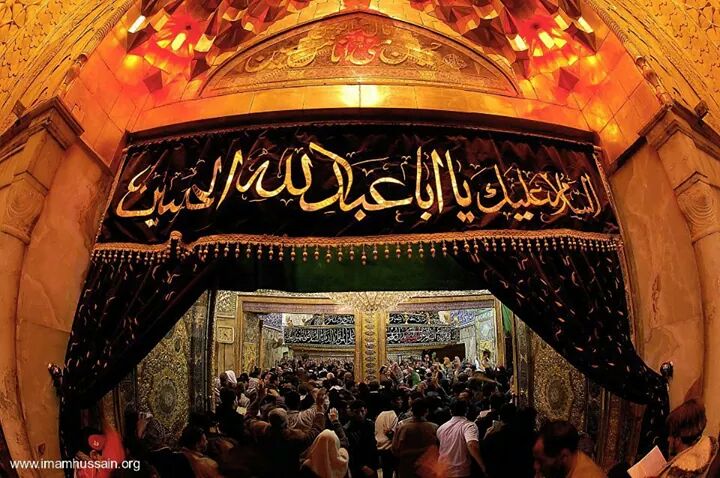
FUNDAMENTALS OF ISLAM
Usool -ad-Deen (Roots of Religion)
Furoo-ad-Deen (Branches of Religion)
|

SAFAR UL MUZAFAR
01 Safar ahle bait entered Yazid’s Palace in Syria
06 Safar, martyrdom of Sukayna bint Husayn, youngest daughter of Hussain ibn Ali and a prisoner of Karbalā
13 Safar, death of Sukayna bint Husayn, youngest daughter of Hussain ibn Ali and a prisoner of Karbalā.
20 or 21 Safar, Arba’een or Chehlum (the 40th day after Ashura)
23 Safar, Birth of Muhammad al-Baqir
27 Safar, Migration (Hijrah) from Makkah to Madinah
JUMA KI FAZILAT
JUMA NAMAZ KE KHUTBE KI FAZILAT Imam Ali (as): Jo shakhs Namaz e Juma ki Adaayegi ke liye Imam se Pehle Masjid mein jaaye Aur khamoshi se Khutba sune To Aainda Juma Tak Uska ye amal uske Gunaaho’n ka kaffara Shumaar kiya jayega. Iske alawa usay mazeed(additional) 3 dino’n ki Ria’yat (concession) bhi di jayegi kyun ki Allah st ka Farmaan hai: “Jo koi ek neki kare usay 10 guna sawaab diya jayega (Surah An’aam Surah 6, Ayat 160).” (Tafseer Noor us Saqlain, v3, p314) A humble request : Please do pray & work for restoration of Jannat al-Baqi.







